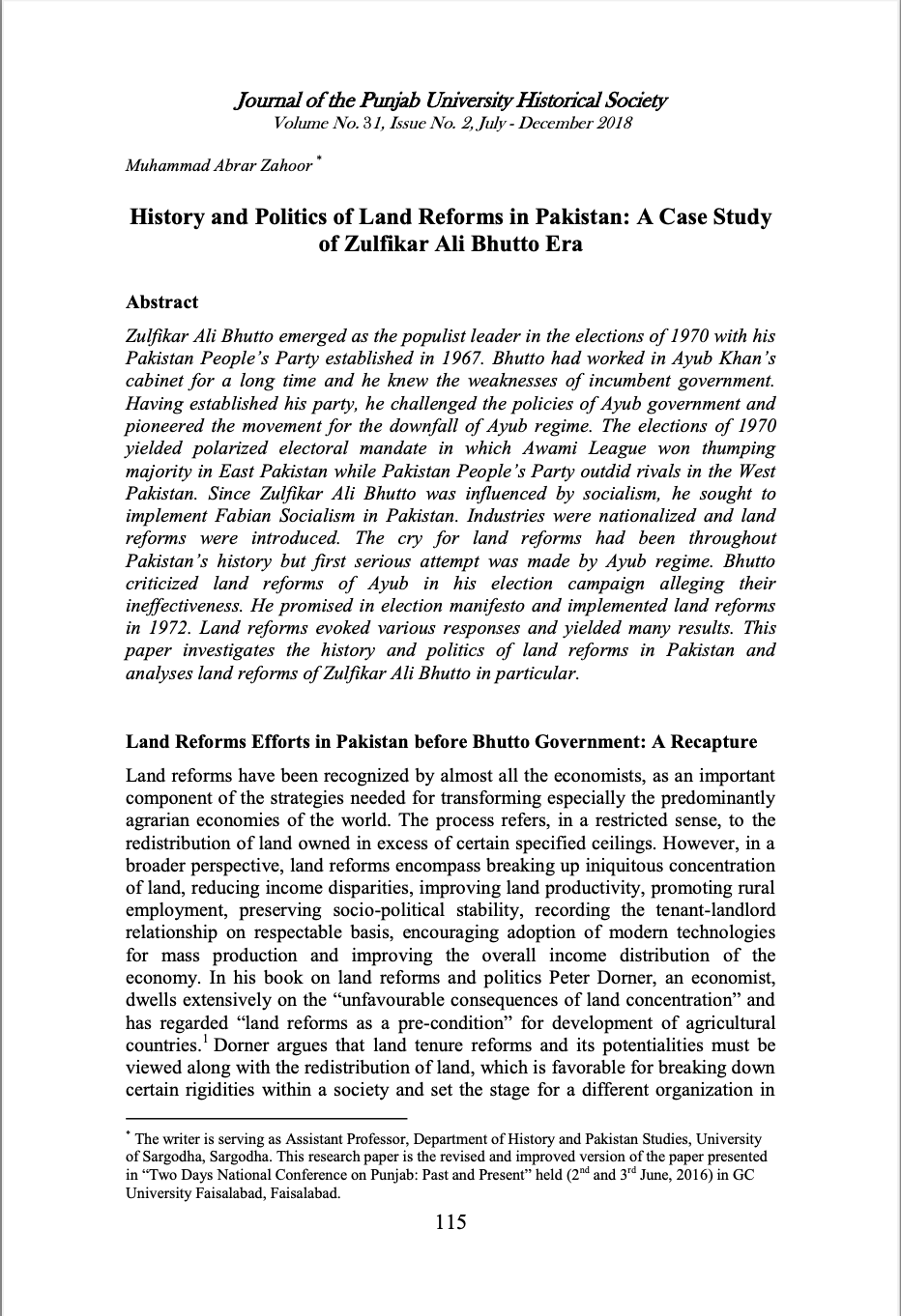Resource information
Zulfikar Ali Bhutto emerged as the populist leader in the elections of 1970 with his Pakistan People’s Party established in 1967. Bhutto had worked in Ayub Khan’s cabinet for a long time and he knew the weaknesses of incumbent government. Having established his party, he challenged the policies of Ayub government and pioneered the movement for the downfall of Ayub regime. The elections of 1970 yielded polarized electoral mandate in which Awami League won thumping majority in East Pakistan while Pakistan People’s Party outdid rivals in the West Pakistan. Since Zulfikar Ali Bhutto was influenced by socialism, he sought to implement Fabian Socialism in Pakistan. Industries were nationalized and land reforms were introduced. The cry for land reforms had been throughout Pakistan’s history but first serious attempt was made by Ayub regime. Bhutto criticized land reforms of Ayub in his election campaign alleging their ineffectiveness. He promised in election manifesto and implemented land reforms in 1972. Land reforms evoked various responses and yielded many results. This paper investigates the history and politics of land reforms in Pakistan and analyses land reforms of Zulfikar Ali Bhutto in particular.


